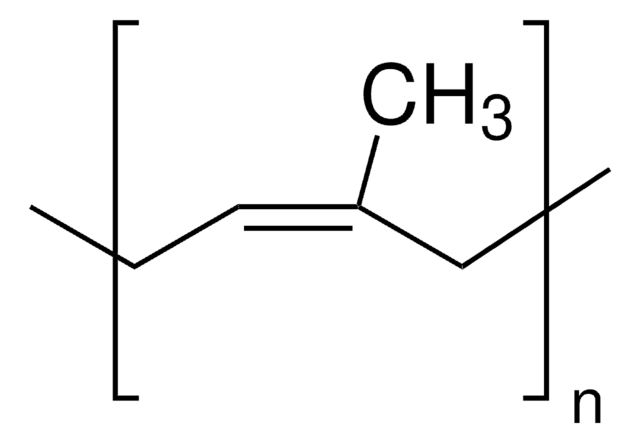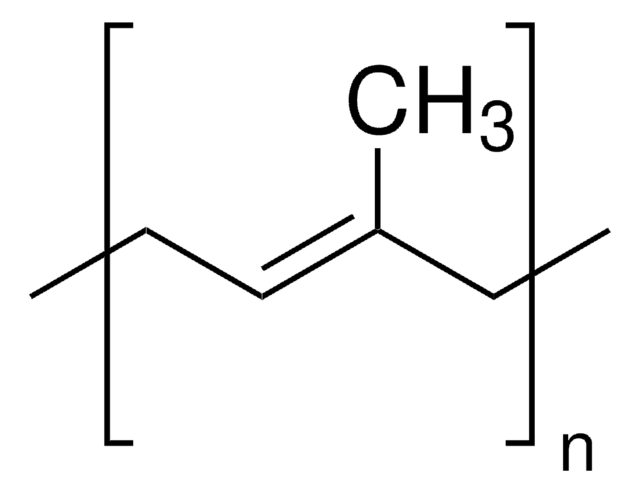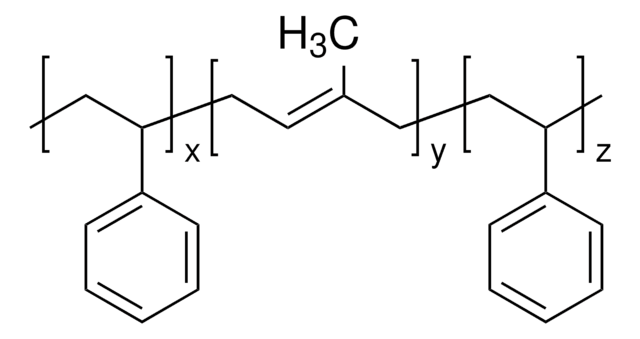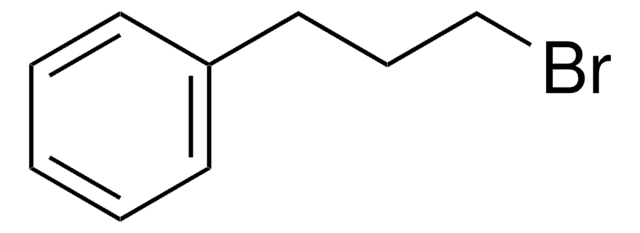All Photos(1)
About This Item
Linear Formula:
[-CH2CH=C(Cl)CH2-]n
CAS Number:
MDL number:
UNSPSC Code:
12162002
PubChem Substance ID:
NACRES:
NA.23
Recommended Products
form
chunks
viscosity
40, Mooney(lit.)
transition temp
Tg −48 °C
density
1.23 g/mL at 25 °C (lit.)
SMILES string
ClC(=C)C=C
InChI
1S/C4H5Cl/c1-3-4(2)5/h3H,1-2H2
InChI key
YACLQRRMGMJLJV-UHFFFAOYSA-N
Looking for similar products? Visit Product Comparison Guide
Storage Class Code
11 - Combustible Solids
WGK
WGK 3
Flash Point(F)
Not applicable
Flash Point(C)
Not applicable
Personal Protective Equipment
dust mask type N95 (US), Eyeshields, Gloves
Certificates of Analysis (COA)
Search for Certificates of Analysis (COA) by entering the products Lot/Batch Number. Lot and Batch Numbers can be found on a product’s label following the words ‘Lot’ or ‘Batch’.
Already Own This Product?
Find documentation for the products that you have recently purchased in the Document Library.
Alexis G Davis et al.
Journal of athletic training, 46(6), 615-620 (2011-01-01)
Knee braces and neoprene sleeves are commonly worn by people with anterior cruciate ligament reconstructions (ACLRs) during athletic activity. How knee braces and sleeves affect muscle activation in people with ACLRs is unclear. To determine the effects of knee braces
Anne B-H Dall et al.
Contact dermatitis, 67(2), 89-93 (2012-03-21)
Diethylthiourea is widely used in the rubber industry, particularly in neoprene rubber, and may cause allergic contact dermatitis. However, as thiourea allergens are not part of the European baseline series, the diagnosis of allergic contact dermatitis caused by thiourea compounds
Jin-Rong Zhang et al.
Chemistry & biodiversity, 9(10), 2218-2224 (2012-10-20)
Nine achiral tetraprenylated alkaloids, including three new compounds, named malonganenones I-K (1-3, resp.), together with six known analogs, 4-9, were isolated from the gorgonian Euplexaura robusta collected from Weizhou Island of Guangxi Province, China. The structures of compounds 1-3 were
A linear allergic contact dermatitis to p-tert-butylphenol formaldehyde resin sectorially present in a neoprene orthopedic brace: role of spectroscopy.
Monica Corazza et al.
Dermatitis : contact, atopic, occupational, drug, 23(6), 292-293 (2012-11-22)
Dennis Flanagan et al.
The Journal of oral implantology, 38(4), 361-364 (2010-09-09)
We describe a cost-effective device that uses an off-the-shelf force transducer to measure patient bite force as a diagnostic aid in determining dental implant size, number of implants, and prosthetic design for restoring partial edentulism. The main advantages of the
Our team of scientists has experience in all areas of research including Life Science, Material Science, Chemical Synthesis, Chromatography, Analytical and many others.
Contact Technical Service







